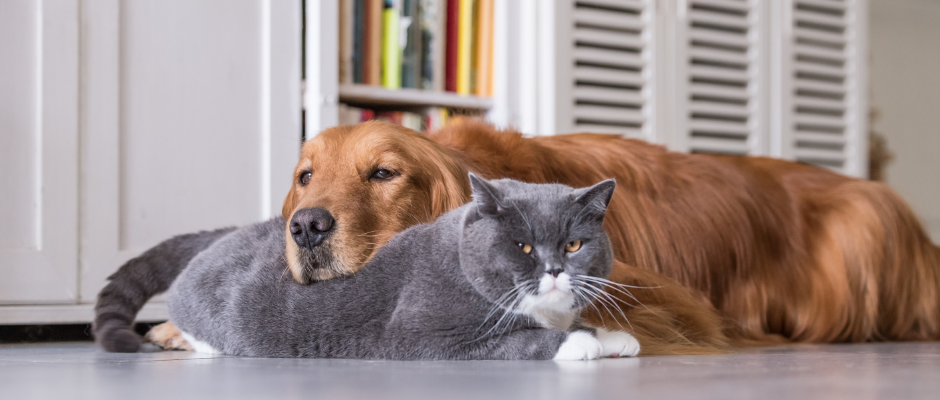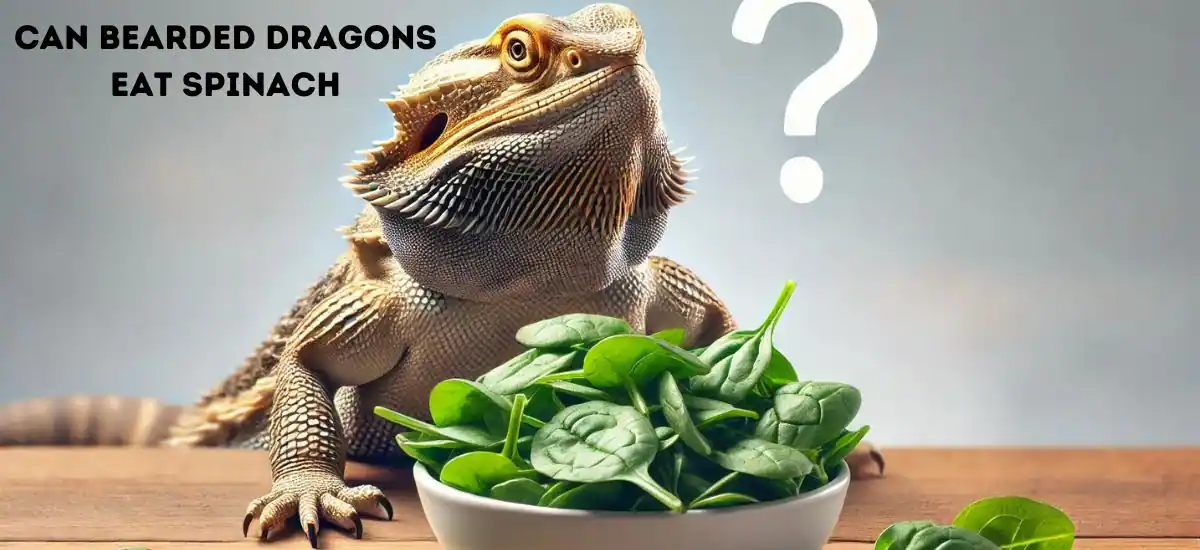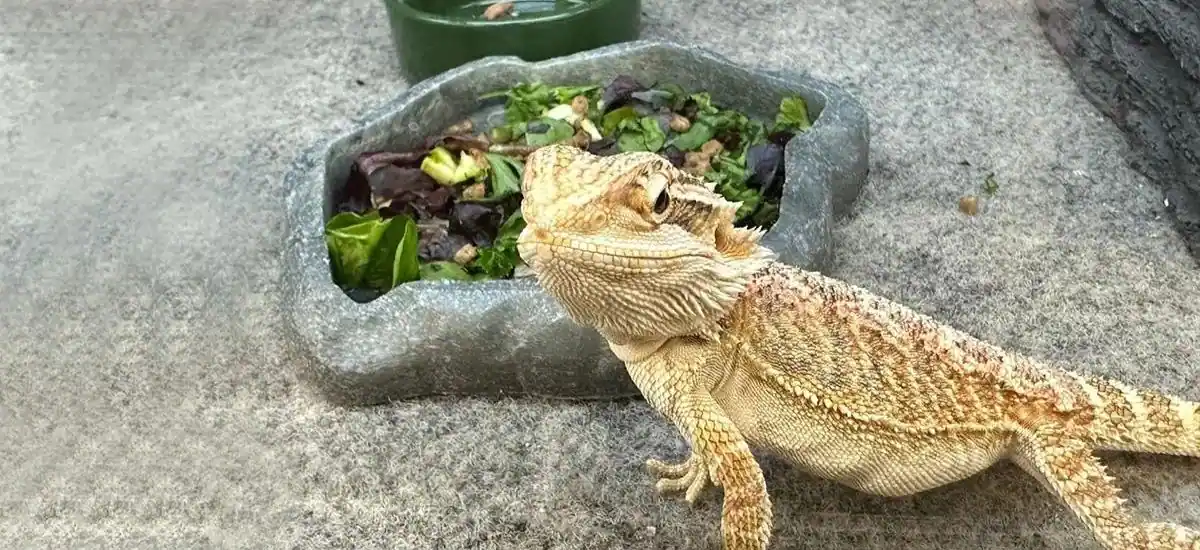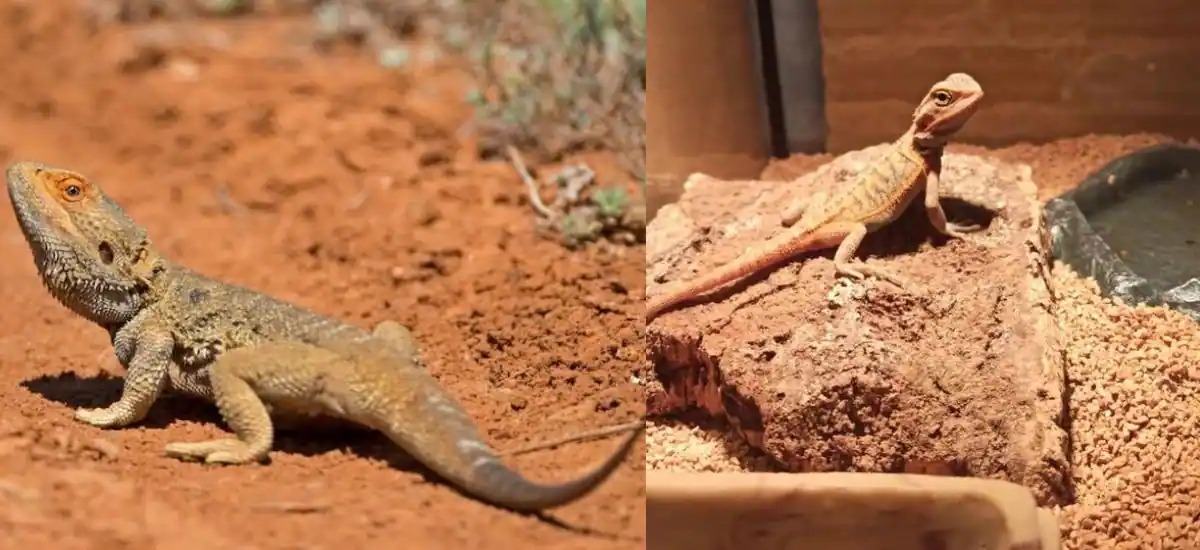Can bearded dragons eat spinach? While it’s a common question among bearded dragon owners, the answer isn’t as straightforward as a simple yes or no. Spinach, while nutritious for humans, presents certain risks when fed to bearded dragons. In this exploration, we delve into the pros and cons of including spinach in your scaly friend’s diet, helping you make informed choices for their health and wellbeing.
What is Spinach?
Spinach is a leafy green vegetable beloved by many for its rich nutritional profile. Known for its versatility in cooking, it packs a punch when it comes to health benefits:
- Nutrients: High in vitamins A, C, K, iron, and folate.
- Antioxidants: Loaded with antioxidants that help combat oxidative stress.
However, when it comes to our reptilian pets, these benefits must be weighed against potential risks, especially concerning their unique dietary needs.
Nutritional Benefits of Spinach for Bearded Dragons

While spinach offers a slew of vitamins and minerals, the impact on bearded dragons is double-edged:
- Vitamin A: Crucial for maintaining healthy vision, skin, and immune function.
- Iron: Supports oxygen transport in the blood, essential for energetic reptiles.
Yet, the presence of beneficial nutrients doesn’t provide the full picture. As we’ll see in the next sections, spinach also contains substances that can pose health risks to bearded dragons.
Risks of Feeding Spinach to Bearded Dragons
While spinach might seem like a healthy choice at first glance, it’s essential to understand the risks it poses specifically to bearded dragons:
- Oxalates: Spinach contains high levels of oxalic acid, which binds with calcium to form compounds that the body cannot absorb. For bearded dragons, whose health depends critically on calcium for preventing metabolic bone disease, this can pose a significant risk.
- Calcium Absorption: The interference with calcium absorption is particularly concerning in young, growing dragons or breeding females who need ample calcium for bone health and egg production.
- Potential for Toxicity: Regular consumption of high-oxalate foods like spinach can lead to the accumulation of crystals in the body, which can cause kidney stones and other health issues.
Given these concerns, spinach should only be offered sparingly and not as a staple in a bearded dragon’s diet.
How Often Can Bearded Dragons Eat Spinach?
Considering the risks associated with oxalates, the feeding frequency of spinach should be carefully managed:
- Infrequent Treat: Spinach can be included in a bearded dragon’s diet occasionally—no more than once a month, to minimize the risk of calcium depletion and other health issues.
- Small Portions: When you do offer spinach, it should be a small part of a much larger, varied salad composed of safer greens and vegetables.
This cautious approach ensures that your bearded dragon can enjoy a varied diet without incurring the risks that spinach might otherwise pose.
Safe Alternatives to Spinach for Bearded Dragons

To provide your bearded dragon with a diet rich in nutrients without the risks of oxalates, consider these safer alternatives:
- Collard Greens: Low in oxalates and high in calcium, making them ideal for regular feeding.
- Turnip Greens: Another excellent source of calcium and vitamins, with lower oxalate levels than spinach.
- Butternut Squash: Provides beta-carotene and other important nutrients, with no oxalate concerns.
Incorporating a variety of these vegetables can ensure your bearded dragon receives a balanced diet rich in essential nutrients without the potential risks associated with high-oxalate foods like spinach.
Expert Opinions on Spinach and Bearded Dragon Diets
Seeking advice from reptile nutrition experts and veterinarians can provide valuable insights into the role of spinach in a bearded dragon’s diet:
- Vet Recommendations: Most veterinarians recommend minimizing the use of spinach in a bearded dragon’s diet due to its high oxalate content, which can hinder calcium absorption and potentially lead to metabolic bone disease.
- Research Insights: Studies on reptile nutrition often emphasize the importance of a balanced diet that prioritizes foods with low oxalate content and high nutritional value, specifically tailored to the needs of bearded dragons.
Conclusion
So, can bearded dragons eat spinach? While it’s technically safe in small, infrequent amounts, the risks associated with its high oxalate content make spinach a less ideal choice for these pets. Bearded dragon owners should prioritize greens that are safer and more beneficial to their scaly friend’s health, such as collard greens and turnip greens, which offer essential nutrients without compromising calcium absorption.





